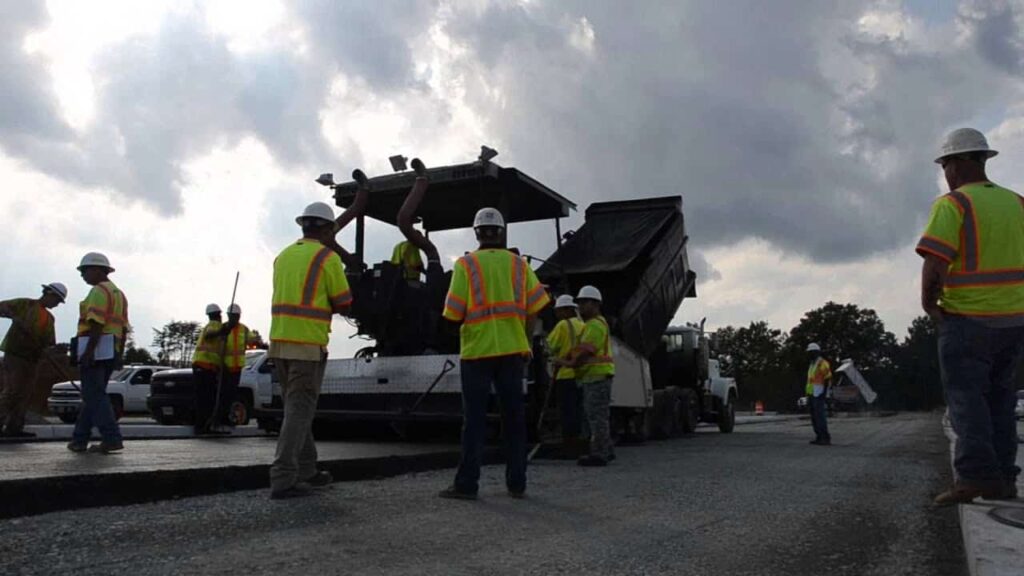INTRODUCTION
Roller compacted concrete or RCC is a widely known term in the construction industry. It is a dried mix of basic ingredients used in conventional concrete like water, cement, and aggregates like gravel or crushed stone, but in different proportions, giving it a zero-slump consistency in its unhardened state.
Nowadays, RCC has become synonymous with strength, durability, and thrift in construction industry news as the roller compacted concrete is simply fast and very economical because it is constructed without joints, finishing, steel reinforcement, or dowels. Depending upon the need of the project the RCC is paved very quickly (60 to 120 meters per hour) and in thin layers ranging from 20 to 30 cm.
Cement
A cement with low heat generation is recommended in RCC.
Aggregates
Selection of aggregates and of aggregates quality is very important. Aggregates shall meet ASTM C33 standards. Aggregates of diameter 76 mm (3 in) are not used as they cause problems in the spreading and compacting of the layer. Aggregates of diameter finer than 75 mm reduce the voids and create a more cohesive mixture.
Mineral Admixture
A large amount of mineral admixtures reduces the cost and adiabatic temperature rise of concrete and increases durability. Class F fly ash, Class C fly ash, slag, and natural pozzolan are used as mineral admixtures.
Chemical Admixture
In RCC air-entraining and water-reducing admixtures containing a higher volume of paste are used.
Uses of Roller Compacted Concrete
- Roller compacted concrete is used for pavement of highways and streets because they dry quickly.
- In ports and heavy facilities because here heavy containers are pulled making it best for roller-compacted concrete.
- Busy streets and roads, because roller-compacted concrete takes very little time to be paved.
Properties of RCC
The properties of RCC are as follows.
- Tough and durable
- Versatile
- Strong
- High performance without the high cost
- Anti-freezing and thawing
- Sustainable
Advantages of Roller compacted concrete
The advantages of RCC are as follows :-
- Durable and fast
- No potholes
- Minimum maintenance required.
- Can withstand extreme temperatures.
- Resistance to an oil spill, and hydraulic fluids.
- Due to the layer placement method the cost of the framework is minimized.
The roller compact concrete can be installed today and can be used tomorrow. Overall, it is a better option for places where performance, sustainability, and cost-effectiveness are important factors.


